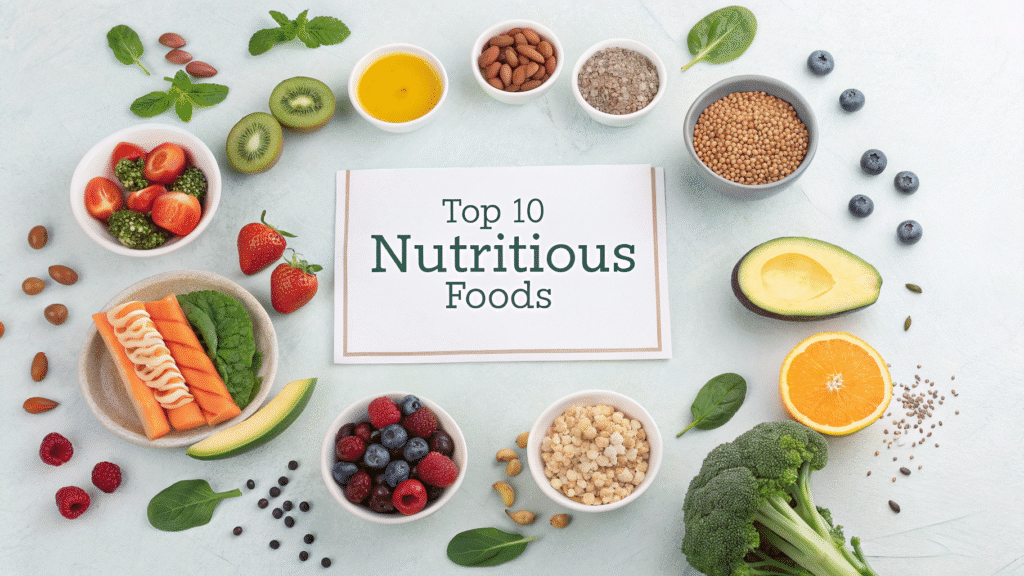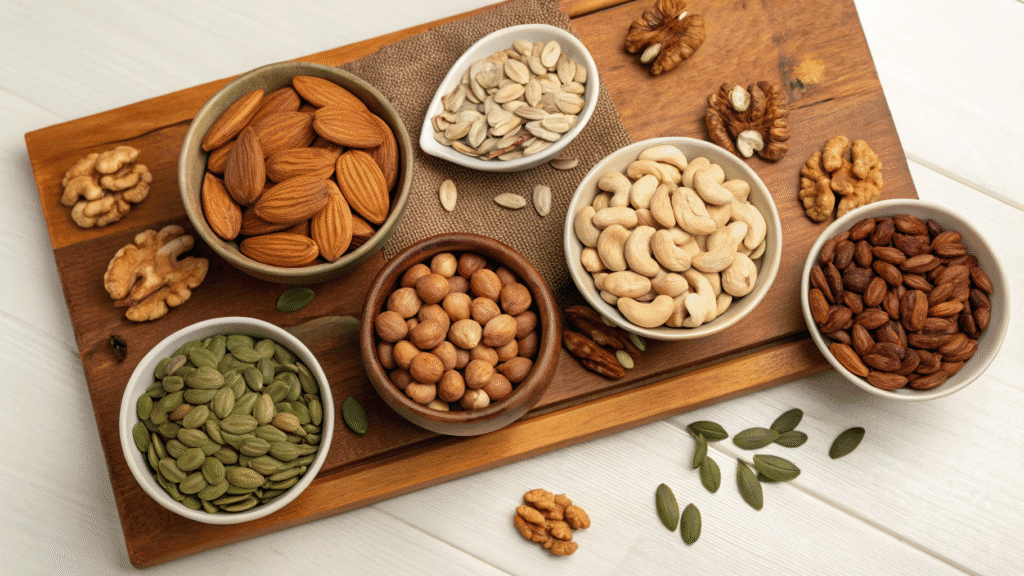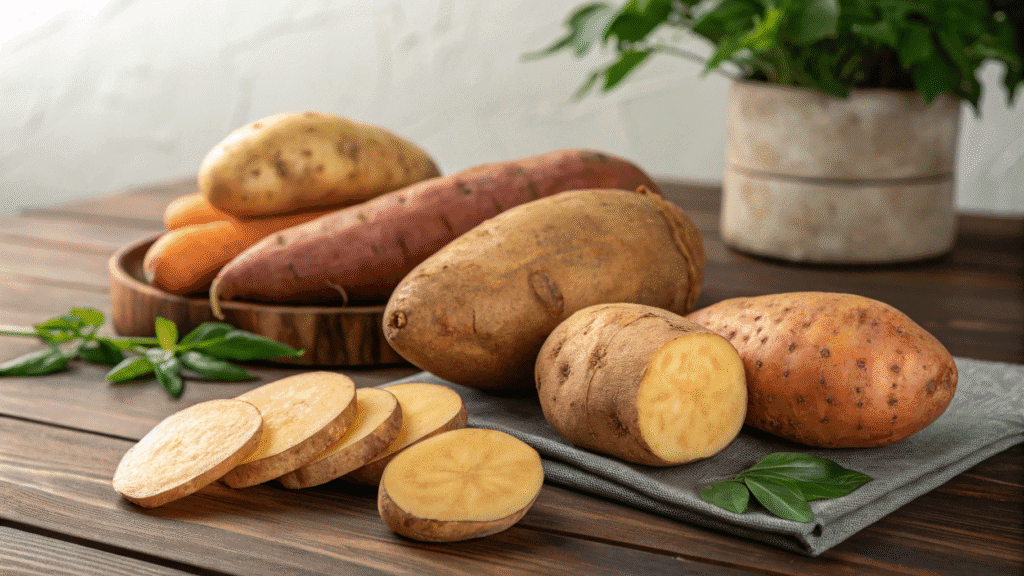A balanced diet is the cornerstone of optimal health. As a dietitian, I am often asked about the best nutritive foods to include in a daily diet. Here is a list of ten powerful options that can do wonders for your well-being and help you maintain a healthy eating routine.

1. The berries
Strawberries, blueberries, raspberries and cherries are not only delicious but also loaded with antioxidants, fiber and vitamin C. Their nutrient supply supports the immune system and contributes to healthy skin. Epidemiological studies link regular and moderate blueberry intake to reduced risk of cardiovascular disease, type 2 diabetes and better weight management (National Institutes of Health, 2020). Berries can be added to pancakes or muffins for an antioxidant-rich breakfast.
2. Green leafy vegetables
Spinach, kale and arugula are examples of green vegetables that are rich in nutrients and vitamins and minerals. They provide a considerable amount of vitamins A, C and K, as well as essential minerals such as calcium and iron. About one serving per day of green leafy vegetables can help slow the age-related cognitive decline (National Institutes of Health, 2021). It is possible to put them in a smoothie, in a salad, or cook them in your favorite dishes, such as omelettes and quiches.
3. Nuts and seeds
Almonds, nuts and chia seeds are ‘superfoods’ for their high content of omega-3 fatty acids, protein and dietary fiber. Daily consumption of nuts and seeds can reduce the risk of diabetes, heart disease and even prolong life (Harvard T.H. Chan School of Public Health, 2017). One way to include them in your diet is to sprinkle nuts or seeds on your salads, incorporate them into your bread recipes or use them as a snack with a fruit.

4. Pulses
Lentils, chickpeas and black beans are fantastic sources of plant-based protein. They are also rich in fiber, which can help regulate blood sugar and promote satiety. Legumes can be the basis of delicious curries or stews, served in purée like hummus or added to salads for a dose of protein. Roasted chickpeas also make a crunchy and tasty snack.
5. Fatty fish
Salmon, mackerel and sardines are known for their high levels of omega-3 fatty acids. These fish contribute to good heart health and may help reduce inflammation in the body. Here’s a way to incorporate them into your diet: salmon can be grilled, baked or added to pasta and salads.
6. The eggs
Eggs are a complete source of protein, which means they contain all the essential amino acids. They also provide important B vitamins and trace elements such as selenium. Eggs are quite versatile. They are as good in a sandwich or salad as they are for lunch.

7. Fermented dairy products
Natural yogurt and kefir are rich in probiotics, beneficial for digestive health. They also provide calcium and protein, essential for bones and muscles. Plain yogurt can be topped with fruit and granola for breakfast or as a snack, while kefir can be drunk alone or used as the base for smoothies. You can also use yogurt in sauces or marinades.
8. Whole grains
Quinoa, oats and brown rice are whole grain foods that are excellent sources of fiber and B vitamins, which are crucial for energy and metabolism. Whole grains can be used in breads, cakes or as a base for nourishing bowls.
9. The tubers
Sweet potatoes and potatoes are highly nutritious and contain fiber, vitamins B6 and C, as well as potassium. Sweet potatoes can be roasted, fried or mashed. Potatoes are perfect boiled, mashed or diced and added to stews and soups.

10. Stone fruit
Avocados, rich in monounsaturated fatty acids, are great for the heart, while peaches and nectarines provide fiber and vitamin C. Avocados are excellent in guacamole, sliced on toast or mixed into salads. Peaches and nectarines are delicious when grilled and served with cottage cheese or as a pie topping.
By incorporating these foods into your diet, you are promoting healthy lifestyles, reducing the risk of long-term illness and increasing the variety of foods you eat.





